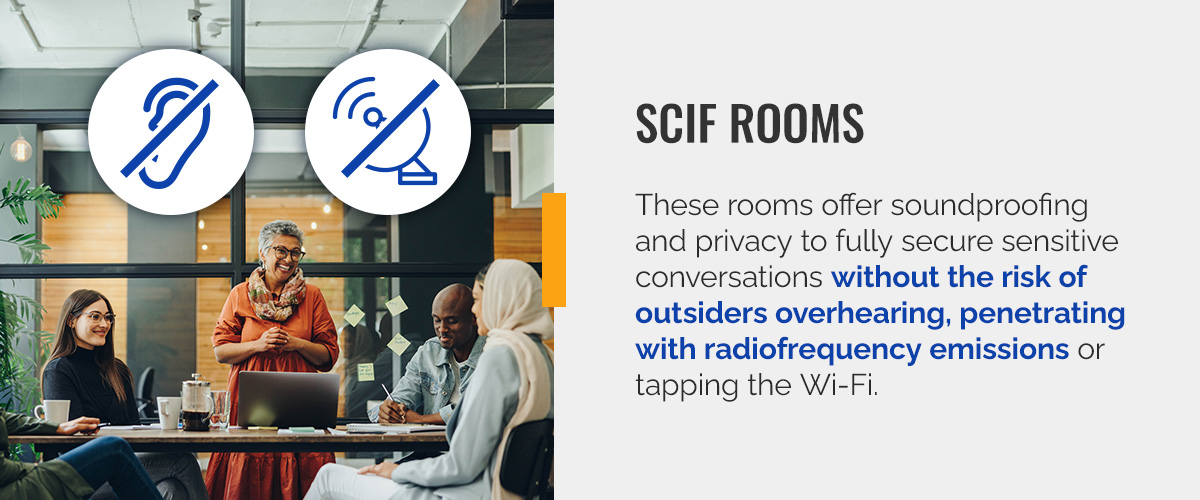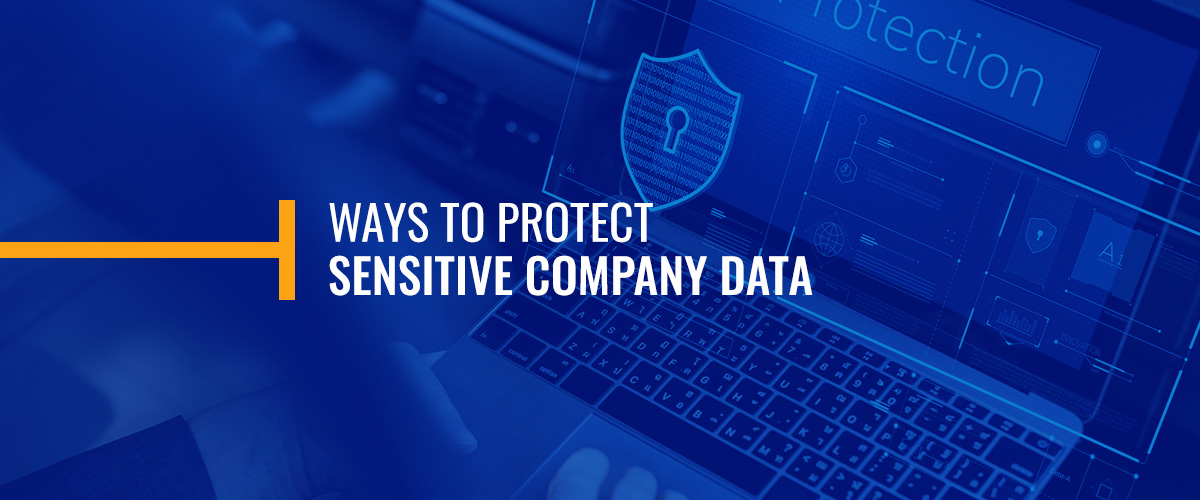Mar 2024
9 Ways to Protect Sensitive Company Data
Data security has never been more important for individuals and enterprises alike. Knowing how to protect your business from internal threats and third-party cybercriminals is essential for keeping your operations running smoothly. Every business should take extensive measures to safeguard private, employee and customer information to the best of their ability.
Learn how to protect sensitive company data with practical strategies and tools you can start implementing today.
9 Ways to Effectively Protect Company Information
The need for comprehensive and effective data security has never been more paramount. Finding tools and techniques to secure your company information is becoming increasingly essential for businesses, especially as data security threats continue to rise rapidly and cyber criminals are becoming savvier.
The following are key ways to protect your company’s private information:
1. Encryption
Data encryption is essential for modern businesses. If you are unfamiliar with the term, it essentially means using sophisticated tools to scramble the information to make it impossible for someone to access or make sense of it without proper verification.
Ensure you find solutions that protect both stored and shared data to combat unauthorized access. Encryption is the most basic and necessary level of cybersecurity all businesses should utilize to combat hackers.
2. SCIF Rooms

A sensitive compartmented information facility (SCIF) room is a great solution for businesses that need to discuss and store private information in person. These rooms offer soundproofing and privacy to fully secure sensitive conversations without the risk of outsiders overhearing, penetrating with radiofrequency emissions or tapping the Wi-Fi.
If you’re wondering if you should create a secure room with SCIF, the following are the primary types of businesses that should invest in these solutions:
- Government agencies
- Defense contractors
- Research and development organizations
- Technology companies
- Law firms
- Health care organizations
- Financial institutions
A SCIF room can secure your office space, giving you greater peace of mind and flexibility.
3. Software Updates
Another way to protect sensitive data is by regularly updating your business’s software solutions.
Your business can benefit from having the latest and most advanced security features. A quick update can improve and provide the following:
- Security patches
- Bug fixes
- Malware protection
- Compliance
- Risk mitigation
Prioritizing regular software updates is an essential part of any company’s cybersecurity strategy. It is among the simplest ways to safeguard your data.
4. Strong Access Controls
Having strong access controls will help your company ensure that only authorized personnel can readily access sensitive information. Good password hygiene, two-factor authentication and routine monitoring are key to protecting your systems from unwanted outsiders.
Grant your team members access only to the systems and resources needed for their specific job duties — this is called the principle of least privilege (PoLP). When an employee leaves your organization, remove their credentials from your system promptly.
5. Data Security Education
Employee training is essential for achieving optimal data security across your business. Your team needs to understand the potential impacts of cybersecurity risks and the best practices to mitigate them.
Regular education and training opportunities can give your team an edge in fighting against common threats, like phishing scams and social engineering attacks. Cybercriminals targeting your company will often capitalize on unintentional insider threats, so it is important that your staff understands how to prevent these potential breaches.
6. Network Security
Prioritizing advanced network security can help your company keep its systems and devices protected against cyberattacks and unauthorized access.
Your network cybersecurity posture should feature firewalls and advanced intrusion detection systems that notify you if someone tries to access your network.
Routine security audits will also help you ensure our network has up-to-date security patches to mitigate vulnerabilities on the attack surface.
7. Cybersecurity Posture Assessments
An important way to protect sensitive information is to regularly evaluate your cybersecurity posture.
A comprehensive assessment will help you identify weaknesses in your security infrastructure that cybercriminals could potentially exploit, giving your company the opportunity to make improvements before it is too late. They will also assist your company in staying compliant with applicable industry regulations and data protection laws.
8. Incident Response Plans
Your business can also protect company information by developing a proactive incident response plan that helps your team recover from the breach as quickly as possible.
Early detection and prompt action are key to minimizing the negative impacts of a cyberattack. With the right plan, your business can contain the incident and prevent it from spreading further. This minimizes damage and ensures you have adequate data backups to continue operations like usual.
9. Physical Security
Do not overlook the need for physical access control measures to secure your business’s private information and data. Even if your company does not require the same level of protection that a SCIF room provides, having the right surveillance cameras, alarms and lighting is important for keeping unauthorized personnel away from your computer systems, devices or data centers.
The Importance of Protecting Personal Information in the Workplace
Your business has a duty to prioritize data security. A potential breach can do more than disrupt your operations — it can impact your organization’s future and put your employee’s and client’s information at risk. Explore the reasons why top-notch data security is crucial for your enterprise:
- Maintaining trust and a positive reputation: You owe it to your employees and customers to do everything in your business’s power to secure their information. If you fail to protect their data, you could lose valuable trust in your organization.
- Meeting regulatory compliance standards: Failing to take adequate measures to keep personal information safe from bad actors and cybercriminals could result in legal consequences and fines.
- Protecting your bottom line: Cybersecurity threats have become a serious economic challenge for businesses. Even a minor breach can cost your organization thousands of dollars.
- Safeguarding intellectual property: Proper security is essential for keeping proprietary and confidential information secure and out of reach from those looking to steal trade secrets.
- Protecting employee and customer information: As a business, your team and customers are your lifeline. Keeping their data secure with extensive cybersecurity mitigation techniques should always be a top priority.
Request a Free Quote From Silent Guardian Today
If your business is on the hunt for extensive security solutions designed specifically for corporate entities, turn to Silent Guardian. We’re here to keep your company, people, assets and data protected.
Rely on us for unbeatable customer service and security solutions tailored to your unique space. In addition to SCIF room design, we also offer security consulting services, bug sweeping, safe room design and system installations.
Ready to supercharge your security with effective solutions created specifically for businesses? Request a free quote from Silent Guardian using our online contact form to get started today.

